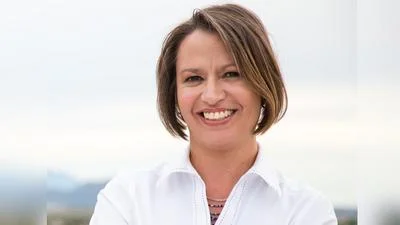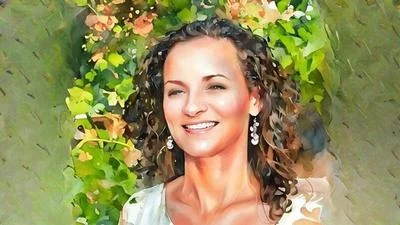The UNM College of Education & Human Sciences (COEHS) recently hosted the inaugural Adaptive Sports Day, an event designed to promote inclusivity in sports for individuals with disabilities. The initiative was spearheaded by COEHS’s Physical Education Teacher Education (PETE) program and Sandia Prep.
“Adapted sport is still sport. It's sports for individuals with disabilities specifically, though other people can partake,” said PETE Assistant Professor Victoria Shiver. She added that everyone can learn the concepts of being lifelong movers and interact well in a competitive environment, regardless of their physical abilities.
The event attracted middle schoolers, community members, and UNM undergraduate and graduate students who came together to better understand the world of adaptive sports. The day was filled with learning, interaction, laughter, and positivity.
The concept of Adaptive Sports Day originated from motivational speaker Travis Davis's advocacy efforts. Born with cerebral palsy, Davis has been instrumental in fostering a culture of inclusion within the Albuquerque community. His vision for an inclusive sports event found support during a pedagogy lab meeting hosted by PETE Graduate Program Coordinator Karen Gaudreault.
Shiver praised Davis's contribution saying, “He is such an advocate and he can have connections to our students who have interest in diving more deeply into how disability may play a role in sport or in physical education.”
Sandia Prep and PETE coordinated the logistics for over 110 middle school students and dozens of UNM students. Activities included wheelchair basketball, sitting down volleyball, boccia ball, a guided run and goalball—a sport designed for visually impaired or blind individuals.
Shiver expressed her enthusiasm for beep baseball—a unique adaptation of baseball that uses sound-based items to facilitate play for those who are blind or visually impaired. Unfortunately, due to supply delays from the only major producer in the country, this activity could not be included in this year's event.
Despite this setback, Shiver emphasized the importance of raising awareness about adaptive sports to make them more popular and accessible. She believes that physical educators should consider teaching adaptive sports alongside traditional ones. This, she said, would help meet the needs of as many students as possible and promote inclusivity.
“Whether it’s parents, UNM students or middle school classmates, inclusivity does not make anything more difficult,” Shiver concluded.









